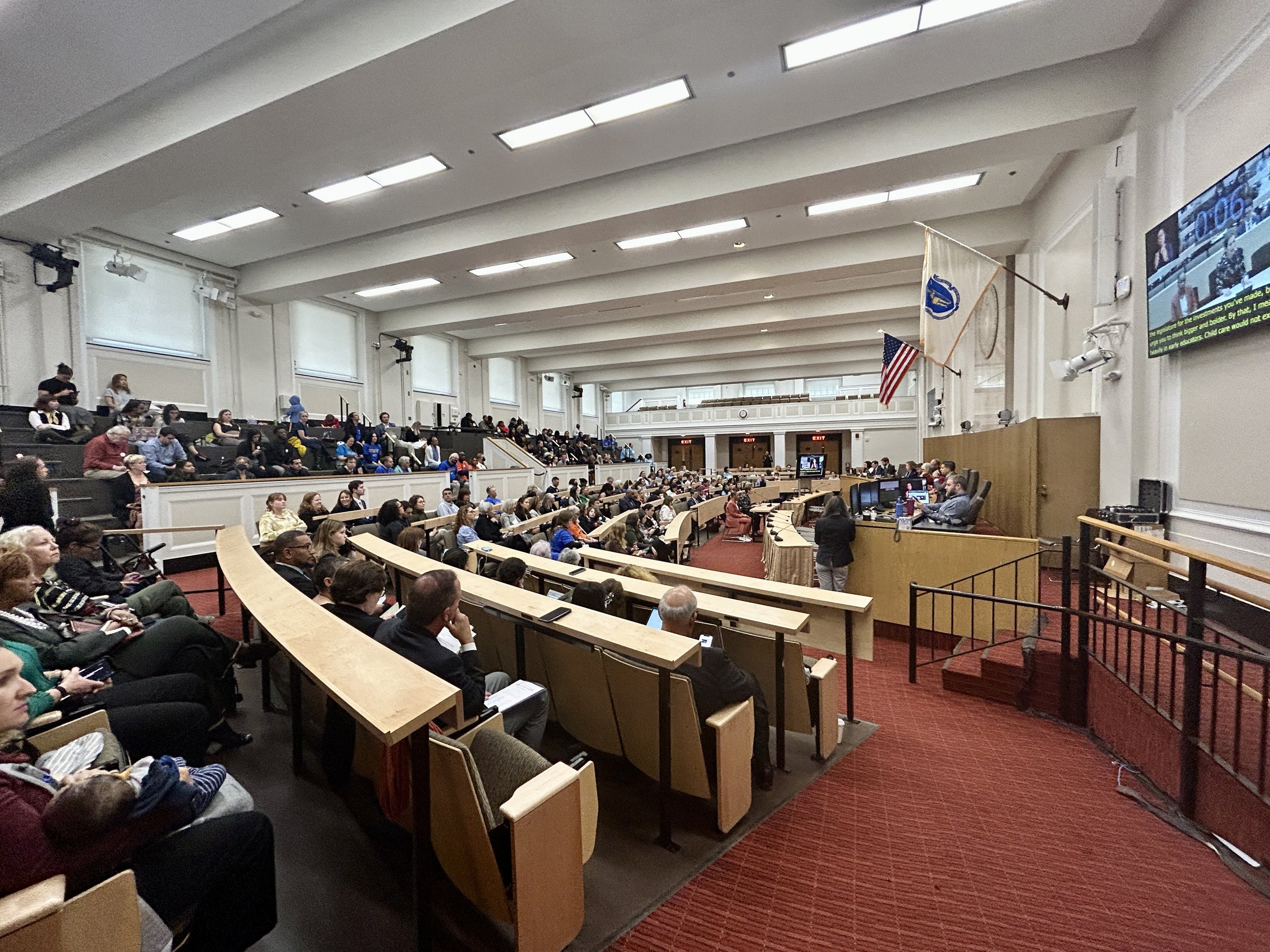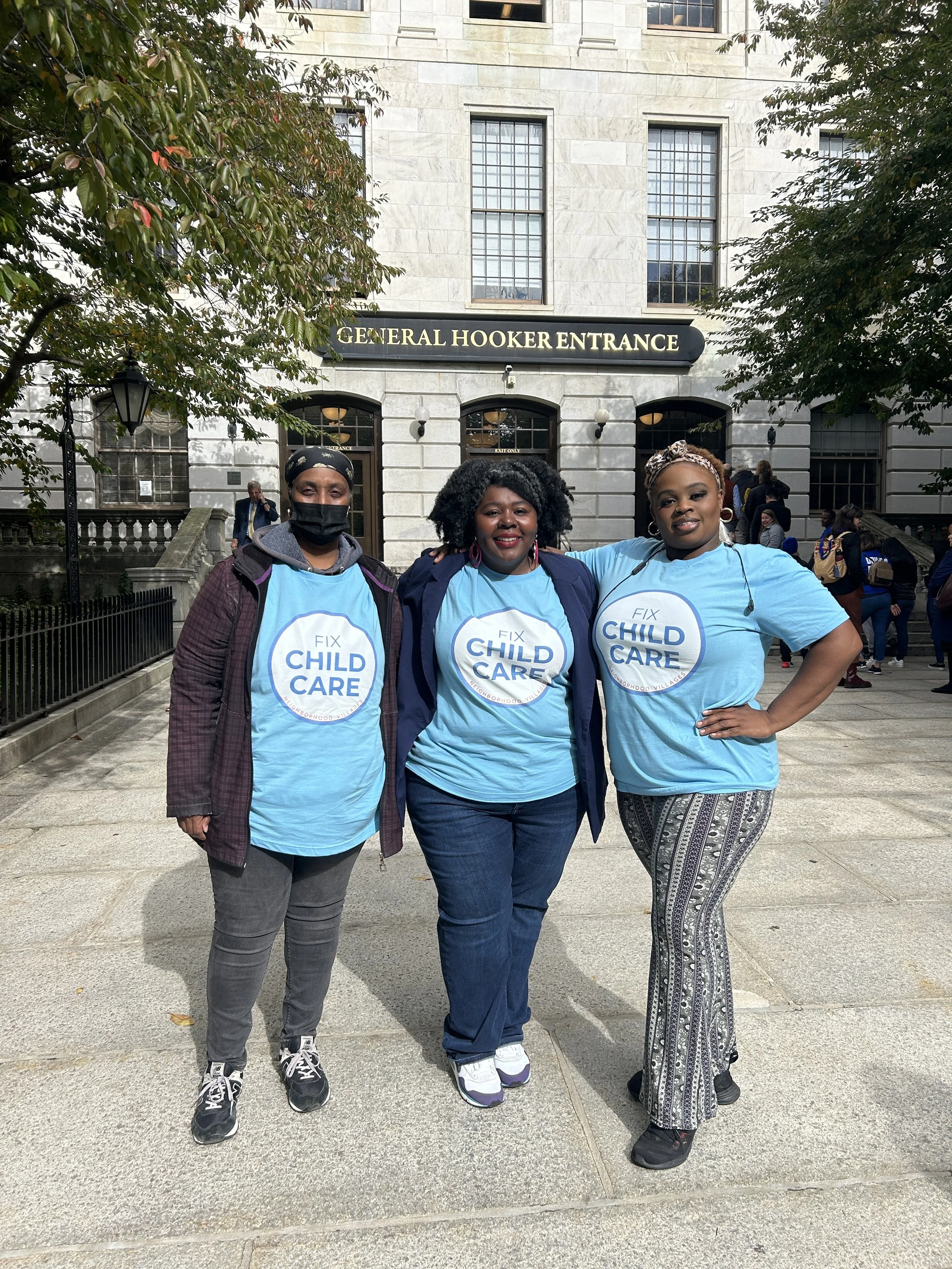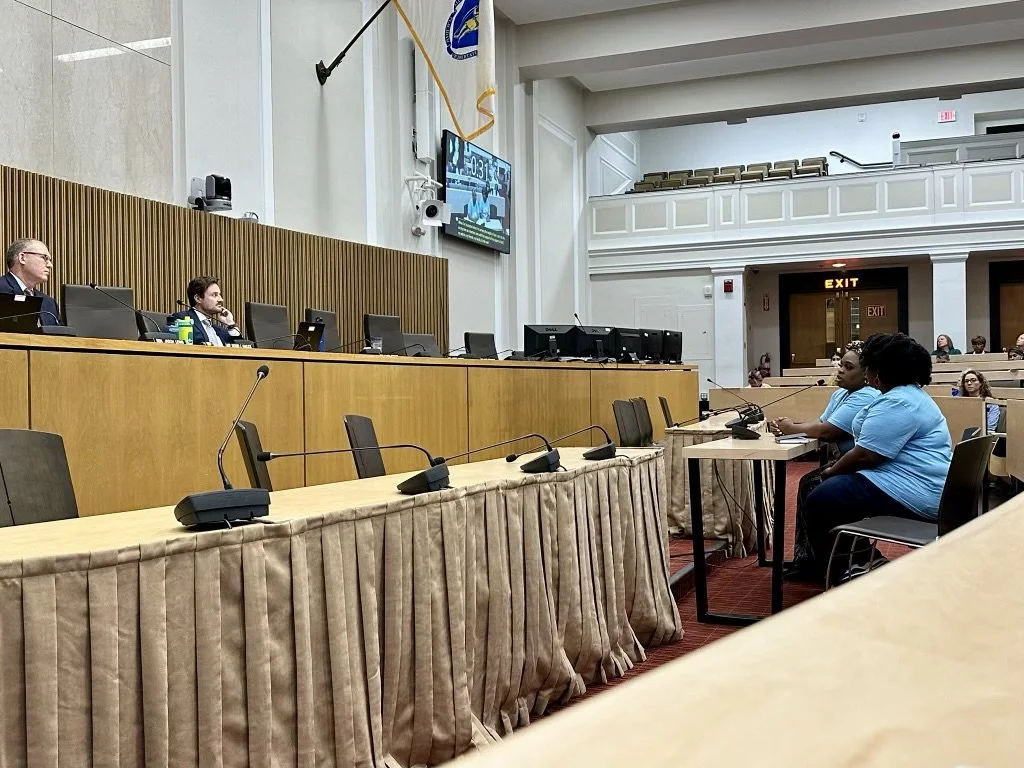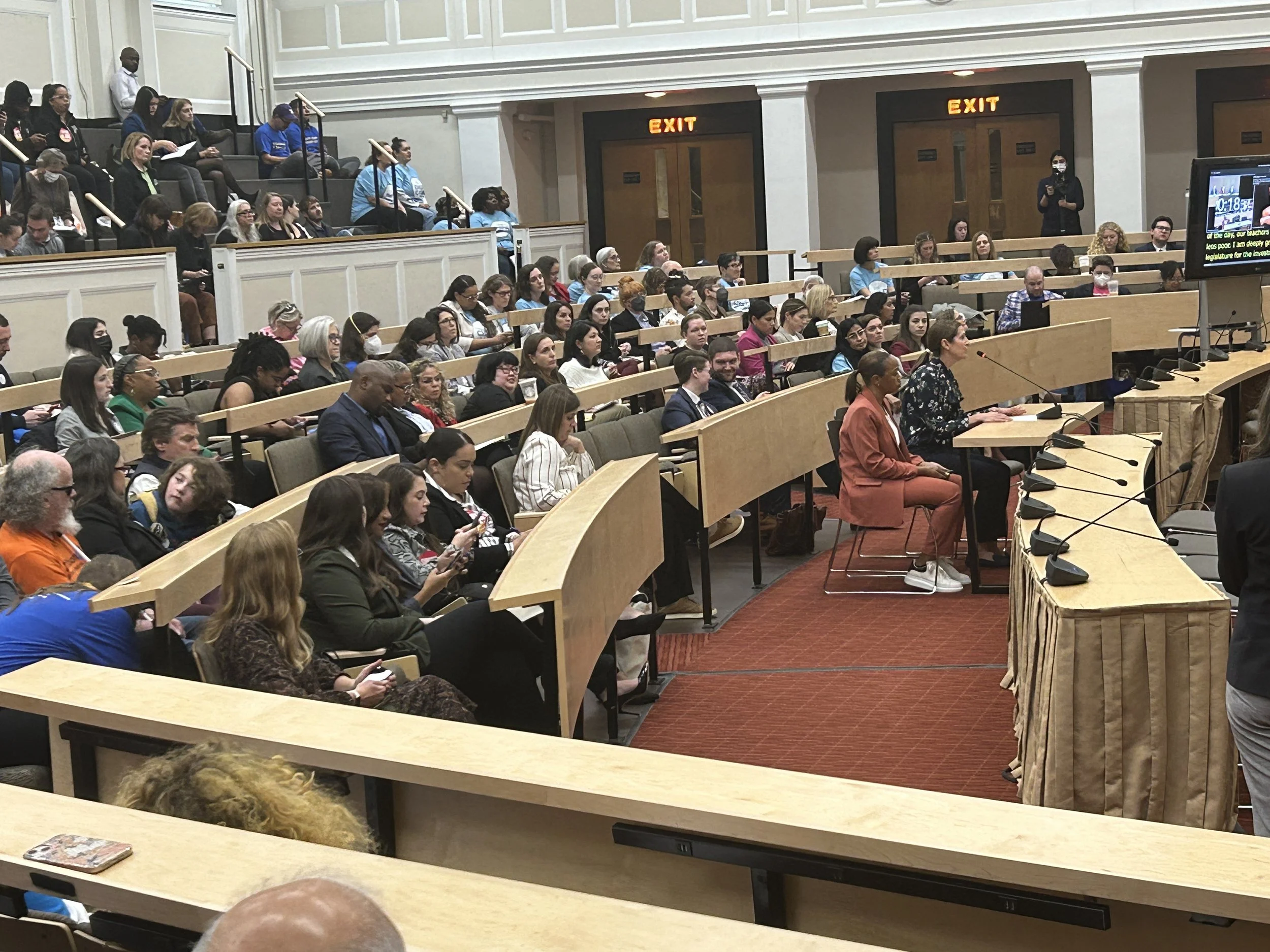Neighborhood Villages rallies with partners to fix child care at the Massachusetts State House
Today, Neighborhood Villages came together with parents, providers, educators, and partner organizations to support vital reforms in child care and early education at the Massachusetts State House. At today’s legislative hearing, we organized child care advocates to show up and testify in support of two important pieces of legislation (H.489/S.301) that would help make child care more affordable for more families.
Throughout the day, members of the Neighborhood Villages team and supporters from all corners of Massachusetts testified before the Massachusetts Joint Committee on Education, urging swift action to fix our broken child care system.
Those who spoke before the Committee highlighted the consequences of inaction and the impact that failing to fix child care has had and will continue to have on children, educators and parents. Without significant investment in ensuring that all children have access to early education and that early educators are paid as the teachers they are, Massachusetts misses out on the opportunity for economic growth and to lead the country in child care reform.
Our very own Pamela Thompson, Director of Teaching and Learning at Neighborhood Villages and early education practitioner, shared personal testimony, underscoring the urgent need to fix the broken child care system, improve workforce training and wages, and reduce the cost of child care for families:
“Countless studies show how access to high quality early education improves outcomes for individual children over their lifetime, yields benefits in the near and long term for families, and improves the economic, health, and educational wellbeing of communities. Yet we continue to undervalue and under invest in the early education and care sector, which predominantly employs women, especially those of color. Through our work at Neighborhood Villages directly supporting educators, and providing pathways for them to enter and improve their skills in the field, we see firsthand the challenges faced and the impact that investments and structural supports can have within the sector.”
"I'm here because there's a crack in the system. We have children who can't read and mothers who are overworked," said Shamila Lloyd, an educator and mom testifying today. "I'm here to speak for those who can't speak for themselves."
“If you want outcomes to improve in K-12 schools, invest in early childhood. If you want healthcare expenditures to decrease over lifespans, invest in early childhood. If you want to drive the economy, invest in early childhood," wrote Lauren Cook in her testimony, CEO at Ellis Early Learning.
“I’m from Arlington and I am a parent of two children and work in early childhood education. I was forced to leave classroom teaching when the cost of childcare far surpassed what I would have earned, in spite of a Masters degree and fifteen years of experience as an educator. I simply couldn’t afford to care for other children instead of my own. After finding employment elsewhere, I spent 50% of my salary on child care and the other 50% on rent, knowing that leaving my job would mean losing my family’s health insurance. Our family was only able to afford half day preschool–an investment that we chose to make for the sake of our child’s development,” stated Sarah Elahi, Curriculum Project Manager at Neighborhood Villages.
Read the testimony from the team:





